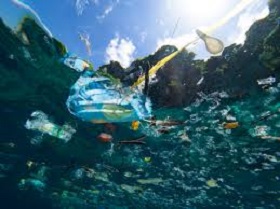Ecology, Education and Science, Estonia, Markets and Companies
International Internet Magazine. Baltic States news & analytics
Monday, 23.02.2026, 11:49
Estonia to start choosing means for reducing use of single-use plastic products
 Print version
Print version |
|---|
As the next step, the Estonian Ministry of the Environment together with market participants will pick the options that are most suitable for Estonia, spokespeople for the ministry told.
The study was carried out by the University of Tartu in cooperation with OU Earth Care. Results of the study show that the removal and collection of refuse and related cost coverage should be organized similarly to the current system in which the collection and handling of garbage is the public sector's task, but the relating costs should be covered by producers or importers. The collection of waste as part of public collection systems and the related costs should be handled by recovery organizations, producers or importers or local governments, depending on the product group.
The researchers proposed four courses of action for reducing the use of plastic products. The proposed options include a visible charge for end-users and concessions to consumers who bring their own containers when shopping for food. A third proposal would see concessions made also for easily recyclable materials, which would mean that products that are more difficult or impossible to recycle would be more expensive. Introducing various requirements for products, such as a mandatory proportion of recycled plastic, has also been recommended as an option.
Stricter measures for regulating the market have also been weighed in the study, such as imposing a levy on single-use plastic products or even introducing a market ban for certain products. The role of the state along with the level of support required from it has also been mapped out, for instance, with regard to fostering the development of substitute products.
On July 5, a directive of the European Parliament and of the Council on the reduction of the impact of certain plastic products on the environment entered into force. The purpose of the directive is to prevent and reduce the impact of certain plastic products on the environment, particularly on the aquatic environment and human health, and boost the transition to circular economy. The directive focuses on ten most problematic single-use plastic products and fishing gear containing plastics, which account for close to 70% of marine litter items by count.
- 28.01.2022 BONO aims at a billion!
- 30.12.2020 Накануне 25-летия Балтийский курс/The Baltic Course уходит с рынка деловых СМИ
- 30.12.2020 On the verge of its 25th anniversary, The Baltic Course leaves business media market
- 30.12.2020 Business Education Plus предлагает анонсы бизнес-обучений в январе-феврале 2021 года
- 30.12.2020 EU to buy additional 100 mln doses of coronavirus vaccine
- 30.12.2020 ЕС закупит 100 млн. дополнительных доз вакцины Biontech и Pfizer
- 29.12.2020 Lithuanian president signs 2021 budget bill into law
- 29.12.2020 Number of new companies registered in Estonia up in 2020
- 29.12.2020 18-19 января Наталия Сафонова проводит семинар "Управленческий учет во власти собственника"
- 28.12.2020 Tartu to support students' solar car project








 «The Baltic Course» Is Sold and Stays in Business!
«The Baltic Course» Is Sold and Stays in Business!

